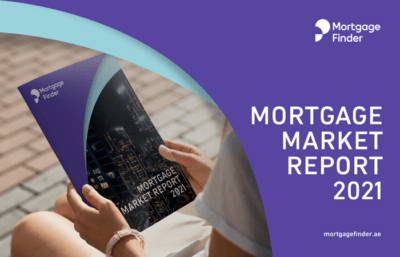

Case study: Self-employed Indian national buying a family home in Dubai
Securing a mortgage for a self-employed applicant can sometimes have its challenges, especially where there are other unforeseen factors that can make the case more complicated.

The client was an Indian national who lived in Dubai and was looking to purchase a property priced between AED 2 – 2.5 million for himself and his family to reside in. When he came to us he had his down payment ready and needed to borrow at 65% loan to value (LTV). The client was self-employed, owning a Logistics company with an annual turnover of AED 200 million.
The problem
During our initial discussions with the client, we learned that his company did not have full audited accounts. As the majority of banks require full accounts in order to grant pre-approval for self-employed applicants we knew this meant we would be limited with the number of banks that we could submit this mortgage to.
Keeping this in mind, we prepared the case and submitted it to the bank that we felt we would have the most chance of success in gaining pre-approval for the client. However, the case was rejected. We questioned the bank as to the grounds for decline and they informed us that the client also had a low credit score and he had therefore failed their credit check.
| As part of most mortgage applications, the bank will run a credit check with the Al Etihad Credit Bureau to evaluate your ability to repay the mortgage. You can read more about this here. |
At this stage, we asked the client to request a copy of their credit report from the Al Etihad Credit Bureau so we could investigate the reasons as to their low credit score. It became apparent that the client had been late to pay on a few credit card statements.
Although the client had his down payment ready and his business was in a healthy financial position, because he had irregular payments on his credit cards these has negatively affected his credit score. This meant the bank then became concerned that he would not keep up with monthly mortgage repayments, in the same way he had been inconsistent in paying his credit card bills.
Our solution
What we needed to do was prove to the bank that the client was capable of keeping up with repayments, and to improve his credit situation.
We advised the client to pause his search for a property and mortgage for 6 – 8 months. Within this time he has to avoid taking any other forms of credit and ensure he kept up to date with all payments for his current credits, like his car loan and credit cards.
After 6 months we reconnected with the client to check how he was getting on. In the eighth month we then asked him to recheck his credit report. His credit score had improved dramatically which meant we were ready to proceed with the mortgage application again.
In the months that the client had taken out to improve his credit score, he has also been able to save more towards his down payment so he was now looking at purchasing a property valued at AED 5 to 6 million instead.
The result
We were able to secure a AED 4 million loan for the client at 65% LTV and he went on to purchase a 5-bed villa in Dubai.
How can we help you?
As you can see from the case study above, the mortgage process can be longer than originally anticipated. We were in touch with this client for a year before he went on to complete his property purchase.
In most cases, we can anticipate the issues that may arise and place your application with a bank that we think will be the best fit for you, as we did with this client since his company did not have full accounts. However, there can be other unforeseen issues along the way that we can provide our experience and advice with on to make sure your mortgage and subsequent purchase is a success.
Case study by Ritesh Shetty, Senior Mortgage Consultant






